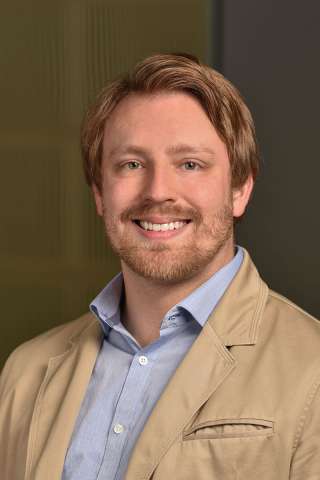
Q&A: Ransom Wyse
July 25, 2019
If you’re 18 or older and have a landline or cellphone registered in Tennessee, Bloomberg Fellow Ransom Wyse’s team at the state’s Office of Population Health Surveillance may want to talk to you. Each year, they randomly select adults and new mothers to answer a slew of questions on everything from smoking to depression to the fruits and veggies they eat. The answers help Ransom and others at the Tennessee Health Department better understand health needs in the state and who is most affected.
“In order to make public health change, we need to know what our population looks like and where to focus our efforts,” he explains.
Ransom is the principal investigator on two of the state’s health surveillance systems. The Behavioral Risk Factor Surveillance System, or BRFSS, collects data about health-related risk behaviors, chronic health conditions and adults’ use of preventive services. The Pregnancy Risk Assessment Monitoring System, or PRAMS, looks at women’s attitudes before, during and after pregnancy. Both are Centers for Disease Control and Prevention projects states can choose to administer.
We talked to Ransom, who is pursuing a doctorate in public health at Johns Hopkins Bloomberg School of Public Health, about Tennessee’s health priorities, how the state is addressing them and his coursework.
Tell me about a health priority you’re particularly interested in.
I’m interested in tackling addiction and overdose by addressing the health risks associated with various conditions, like smoking. On average, 17 percent of adults in America are smokers, but in Tennessee, smokers make up 24 percent of the adult population. That means nearly one in four adults in our state smokes cigarettes. Our surveillance system, BRFSS, includes survey questions that address the adverse outcomes of smoking, such as lung cancer and chronic obstructive pulmonary disease. After collecting information about the prevalence of these health risks among residents, we’re able to statistically manipulate the data to make it look like the total state of Tennessee, since we couldn’t possibly interview everyone. Ultimately, we can use our data to quantify how smoking is impacting our state’s health and address it accordingly.
How is Tennessee addressing smoking as a result of the surveillance system findings?
The end goal of our work is to create effective programming targeting those populations to drive down rates of adverse health outcomes that result from smoking. But in order for that to happen, we have to get our data into the right hands.
For example, data dissemination is critically important to policy. For lawmakers to target a tax on tobacco products most effectively, they will need to know how many people are smoking those products as well as what age and demographic groups users belong to. We make sure our data, oftentimes taking the form of data summary reports, get to them, so they have the right information to make those important decisions.
We also share general data summary reports at our data users’ meetings twice a year. We welcome internal and external stakeholders who have an interest in our data, including tobacco-related data, and who may want us to include specific questions on the BRFSS survey. We try to include questions addressing as many groups’ interests as possible in order to help our stakeholders build targeted and specific programs to improve health outcomes in our state.
What have you enjoyed most about the Bloomberg fellowship so far?
The classes I’ve taken so far have been really fascinating. But even as a long-time public health practitioner, some of the courses have taken me out of my comfort zone, which is a good thing! For instance, I’ve been learning about risk assessment and risk management plans — things I don’t normally do in my line of work. Ultimately, though, I’m getting a valuable theory-to-practice experience out of my studies that I can apply directly to my work surveying the Tennessee population in real time. I’m excited to dive deeper into advanced epidemiology and take additional classes to help me better understand and support the populations I’m focusing on. I truly believe that what I’m learning in the fellowship will better equip me to make a difference for people facing addiction and overdose in my home state, which is needed now more than ever.
Connect With Us
Receive all the latest news from the Initiative by signing up for the American Health Dispatch newsletter, subscribing to the American Health Podcast, and subscribing to our YouTube channel.
Contact Us